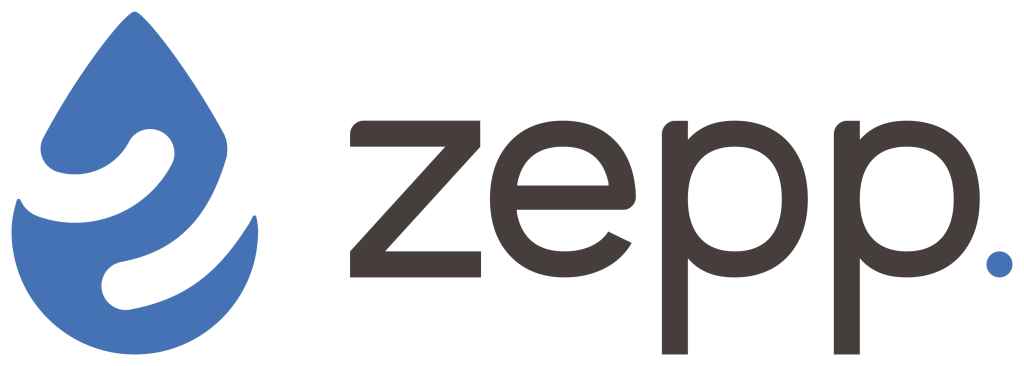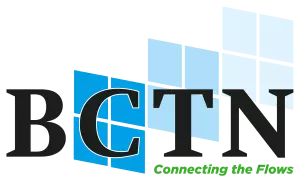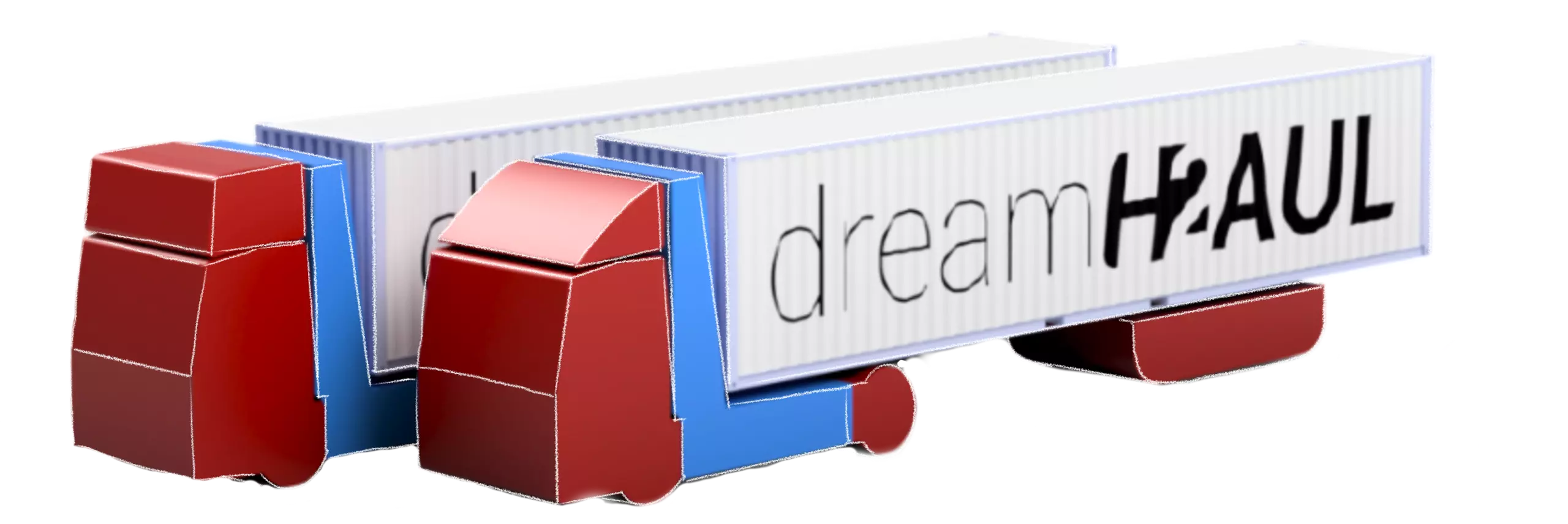
a new type of hydrogen-electric semi truck and a new public fueling station for green hydrogen
2 X
1 x
The transport sector has an important role to play in the energy transition, as it accounts for more than a quarter of the world's total energy consumption and a fifth of global energy-related CO2 emissions. The alternative fuel hydrogen plays an important role in becoming independent from fossil fuels. Unfortunately, there are currently no hydrogen-electric N3 tractor units for trailers, which seriously impedes the roll-out of sustainable heavy road transport.
Within the DreamH2aul project, a hydrogen fuel cell system with an extremely high power density is being developed. This system will be integrated into 2 semi-trucks that will carry enough hydrogen tanks for a range of at least 600 km. These trucks will refuel green hydrogen at a public filling station that will be realized within the project on the important North Sea-Baltic TEN-T Corridor. In addition to demonstrating hydrogen technology, the economic feasibility of hydrogen trucks will be examined by comparing the total cost of ownership with both diesel and battery-electric trucks. The results of this investigation will be made available as a public report. This report, the opening of a new hydrogen filling station and the availability of the new N3 hydrogen-electric truck developed in this project will stimulate the wider transport sector to use green hydrogen as a fuel for heavy freight transport and thus reduce the emission of CO2, NOx, particulate matter and noise emissions.
The world's first hydrogen-powered zero-emission semi-truck that, under current European regulations, is allowed to tow any trailer, can drive more than 600 km on a single tank and offers the driver the necessary sleeping place
Ontwikkeling en realisatie openbaar tankstation voor groene waterstof aan A1 in Deventer.
Ontwikkeling heavy-duty brandstofcelsysteem met hoge vermogensdichtheid en waterstof opslagsysteem. Inbouw systeem in elektrische N3 trucks.
Aanschaf waterstof-elektrische N3 truck. Testen en verzamelen gebruiksdata trucks.
Aanschaf waterstof-elektrische N3 truck. Testen en verzamelen gebruiksdata trucks.
Opzetten van een systeem om projectresultaten te monitoren. Vergelijking waterstof-elektrische truck met alternatieven.
Technology
What is hydrogen?
Colour
Process
Source
GREY
Steam Methane Reforming (SMR) or gasification
Methane or coal
BLUE
Steam Methane Reforming (SMR) or gasification. CO2 is captured and stored
Methane or coal
GREEN
Electrolysis
Electricity from renewable sources
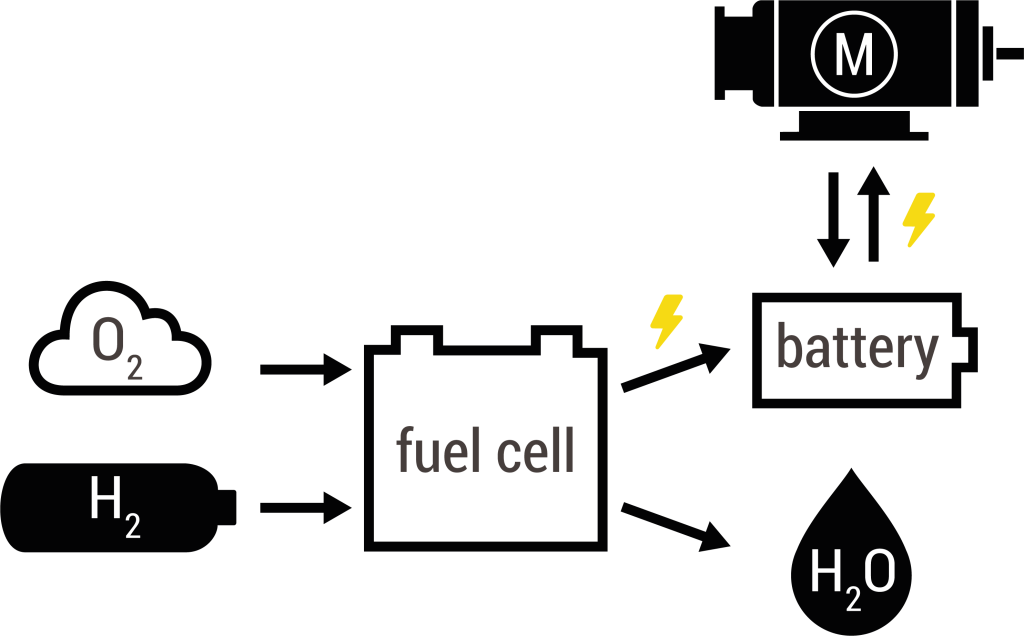
Why hydrogen for mobility?
Hydrogen has a high energy density and can easily be transported and stored. This makes hydrogen fuel cell technology especially attractive for applications that combine a demand for high continuous power output with long operational uptimes like the N3 trucks in this project. Current alternative energy storage systems, such as battery technology, require long charging times and the costs of these systems scale linearly with the required energy content. Twice the amount of energy requires twice the amount of batteries, costing twice as much. For hydrogen-electric systems, only the amount of hydrogen storage has to be doubled, the fuel cell remains the same. Additionally, the trucks that will be developed benefit strongly from the quick refueling capabilities hydrogen fuel cell systems offer.
How does a fuel cell work?
Hydrogen enters the fuel cell on the top left and splits into two protons and two electrons at the anode side. Hydrogen that doesn’t react is recirculated. The protons pass through the proton exchange membrane (PEM) in the middle, while the electrons take a detour. The electrons taking this detour provide the electrical energy used to power the application. On the right side of the PEM, at the cathode side, oxygen (O2) is split up and meets up with the protons and electrons. The protons and electrons together form hydrogen (H2), which bonds to the oxygen, resulting in water (H2O).
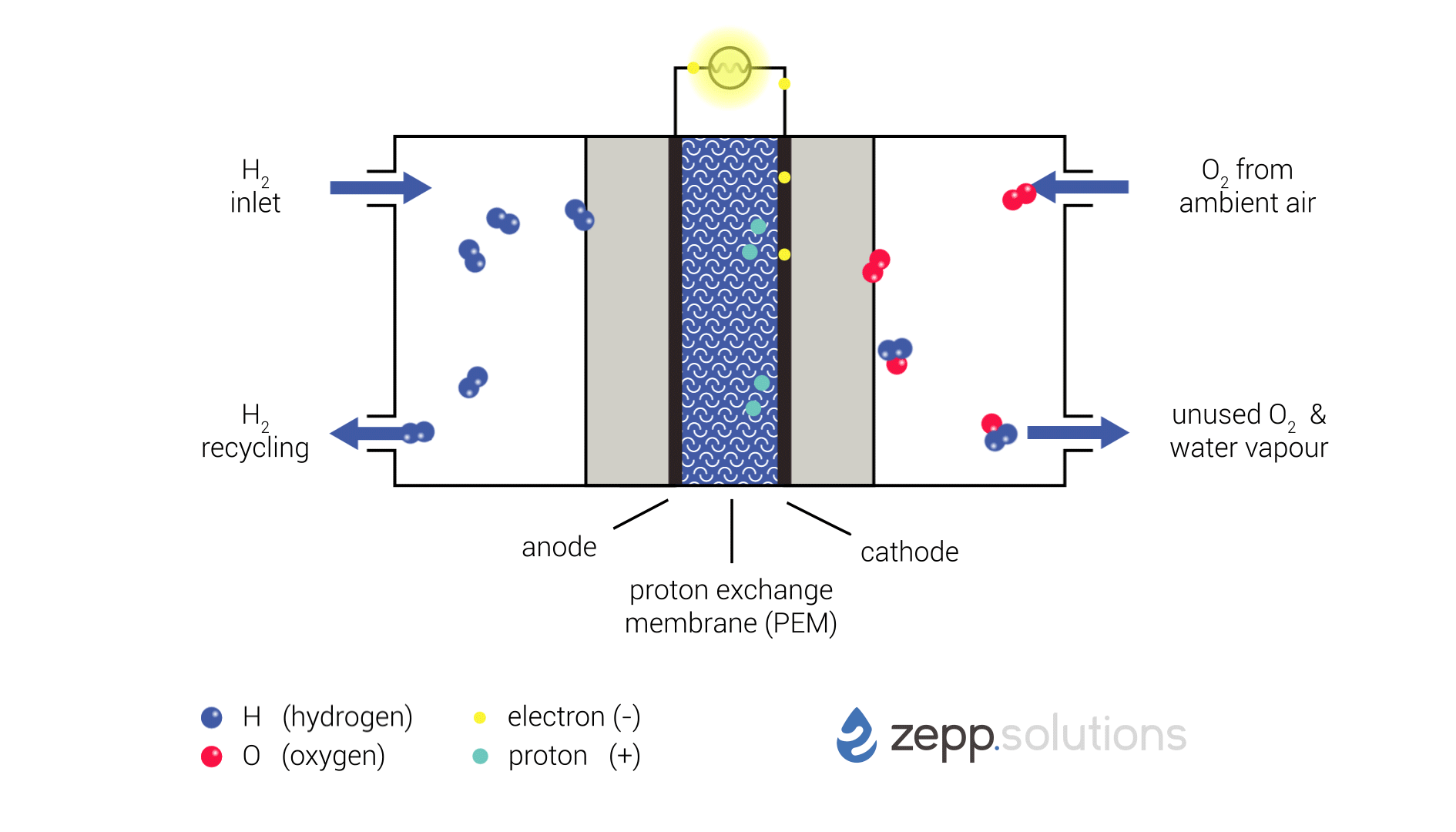
partners
TotalEnergies Marketing Nederland N.V. manages the marketing, distribution and sale of fuels, lubricants, fuel cards and new energies, involving the operation of an EV charging infrastructure of around 8000 charging points, as well as sustainable CNG/LNG and H2 solutions. TotalEnergies supplies energy through their own EV charging infrastructure in the public domain, on customer sites and through their own service stations. TotalEnergies currently has around 400 service stations in the Netherlands. Including staff at its affiliates, TotalEnergies Marketing Nederland employs around 1,400 people.
In this project, TotalEnergies Marketing Nederland is realizing a public hydrogen filling station at 350 bar in Deventer to promote sustainable logistics and the use of the hydrogen-electric tractors from BCTN and Vos Transport. In addition to project coordination, TotalEnergies Marketing Nederland is responsible for purchasing, permits, construction, maintenance and operation of the tank infrastructure. By demonstrating to the market that hydrogen refueling infrastructure is available, market acceptance is supported. The realization of the infrastructure also enables regional end users to invest in hydrogen vehicles.
In this project, zepp.solutions is responsible for realizing a highly innovative fuel cell system with hydrogen storage in order to develop two N3 hydrogen-electric tractors. These vehicles are crucial within the project.
Vos Transport recognizes the importance of sustainable transport and logistics and has been actively contributing to the greening of its sector for years. The company is the first European operating road transport company to receive the third Lean&Green Star. Vos sees hydrogen as the most promising sustainable energy carrier for both regional and international transport. Vos mainly focuses on long-haul and has a geographic specialization in road transport to Scandinavia. Because Germany and Denmark already have an extensive hydrogen infrastructure, greening transport is possible. However, the supply of heavy hydrogen tractors lags behind Vos' needs. Furthermore, the realization of the hydrogen filling station on the A1 near Deventer is important to make this corridor more sustainable.
In this project, Vos Transport is one of two carriers that will purchase and test an innovative N3 hydrogen-electric truck for urban distribution, regional container transport and long-distance transport. After an initial successful demonstration phase closer to home, Vos wants to provide the first green hydrogen-fueled trip to Scandinavia.
BCTN sees the importance of dealing more consciously with nature and therefore opts for sustainable solutions. BCTN sees intermodal container transport by barge as the greenest form of transport. For further significant CO2 reduction, the use of zero-emission vehicles is necessary. BCTN is working on several projects to make its fleet even more sustainable. Hydrogen has great potential as a clean fuel and is of great importance to become even more sustainable in the future. This also allows BCTN to distinguish itself and be the first to strive for the fourth Lean&Green star. BCTN is a frontrunner in this field and has already reduced its CO2 emissions by more than 35%. BCTN wants to extend this to zero-emissions.
In this project, BCTN is one of two carriers that will purchase and demonstrate an N3 truck powered by green hydrogen. BCTN will prepare the demonstration period through technical validation, route planning, maintenance planning and training of the drivers of the hydrogen-electric vehicle. During the project, BCTN will actively collect and share practical data with the consortium, and BCTN aims to validate its business case for the use of hydrogen trucks for heavy transport.
The Duch Organization for Applied Scientific Research TNO is an independent research institute that focuses on current social issues. TNO's mission is to connect people and knowledge to create innovations that sustainably enhance the competitiveness of companies and the well-being of society. TNO's multi-year programs focus on, among other things, Zero Emissions in transport and traffic, DreamH2aul fits in seamlessly with this. In these programs, TNO focuses on heavy transport segments because of the importance of both the logistics sector and the vehicle industry in the Netherlands. A comparison between FCEV and BEV trucks makes this project extra relevant for TNO's roadmap.
TNO's focus in this project is facilitating learning, for and together with the participating companies. Using the knowledge gained in previous DKTI projects, TNO will set up an efficient and effective monitoring system that will give insight to chosen KPI's for all project partners. From its independent position, TNO will provide insight into the learning process and the comparison with alternatives. In addition, TNO, in collaboration with the consortium, will ensure the dissemination of project results.
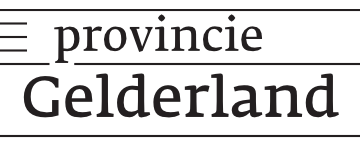


Latest news
Contact
The DreamH2aul consortium partners are TotalEnergies Netherlands, zepp.solutions, Vos Transport Group, BCTN Group and TNO.
Vragen? Stuur een bericht via het contactformulier, dan nemen we zo snel mogelijk contact met u op.


